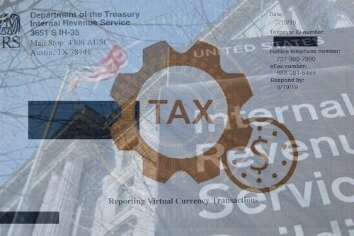Does Solicitors Have To Register With Ico And What Is The Consequences Of Not Registratring
Content
- Data Protection Act Registration: A History Lesson
- Information Commissioner’s Office (ico)
- About The Ico
- Do You Need To Pay The Data Protection Fee To The Ico?
Production from Asia & Oceania is projected to grow by 1.9% to 49.58 million bags due largely to a recovery in Indonesia’s output while Viet Nam is expected to remain stable. Central America & Mexico could see an increase of 0.9% to 21.54 million bags while Africa’s output is estimated to decline by 0.6% to 18.2 million bags. World coffee consumption growth is likely to slow in 2019/20 in line with the slower growth expected for the global economy, and demand is projected to increase by 1.5% to 167.9 million bags. We at the International Coffee Organization are deeply concerned by the evolving situation of the Coronavirus and the human tragedy that surrounds it.
As a result, coffee year 2019/20 is seen ending in a surplus of 1.54 million bags. The two consecutive surpluses have limited a recovery in prices, which remain below the long-term average of 135.34 US cents/lb between 2007 and 2018. The ICO composite indicator in September rose by 1.3% to 116.25 US cents/lb. It averaged 107.25 US cents/lb in coffee year 2019/20, 6.7% higher compared to 2018/19. All group indicator prices rose in September 2020 for the third consecutive month, with the largest increase occurring for Other Milds.
- If you have a dashcam that you use for work purposes on a vehicle that you use for work, then you are likely to need to register and pay a data protection fee to the ICO unless you are exempt.
- Exports in the first 6 months of coffee year 2019/20 (Oct/19 to Mar/20) have decreased by 3.9% to 61.96 million bags compared to 64.5 million bags in the same period in 2018/19.
- In November, the ICO composite indicator rose by 3.6% to 109.70 US cents/lb as prices for all group indicators increased, except Other Milds, which fell by 0.9% to 150.73 US cents/lb.
- World coffee exports amounted to 9.29 million bags in September 2019, compared with 9.58 million in September 2018.
- If you are fined for any breaches, they do not keep any money, it is passed directly to the Government.
We provide commercial services through our wholly owned subsidiary SocietyWorks Ltd. WhatDoTheyKnow also publishes and archives requests and responses, building a massive archive of information. © 2021 Mind We’re a registered charity in England (no. ) and a registered company (no. ) in England and Wales.
The various supply and demand impacts will be felt at different points in time further contributing to global market uncertainties and the ongoing price volatility. This publication is the first joint work with the International Food Policy Research Institute under a new collaboration that aims at leveraging ICO statistical data and in-house capacity for economic research. World coffee exports amounted to 10.82 million bags in April 2020, compared with 11.17 million in April 2019. The ICO composite indicator decreased by 4.1% to an average of 104.45 US cents/lb in May 2020, which is the second consecutive month of decrease.
Data Protection Act Registration: A History Lesson
Failing to register with the ICO and pay the fee is a criminal offence. But your personal data belongs to you, so it’s important your data is used only responsibly and in ways you would reasonably expect. For example, every time you visit a website, search for or buy something, use social media or send an email. Whether or not you can rely on an exemption often depends on why you process personal data. If you are a processor, the UK GDPR places specific legal obligations on you. For example, you are required to maintain records of personal data and processing activities. If two or more controllers jointly determine the purposes and means of the processing of the same personal data, they will be joint controllers.
Sage 200cloud Run your entire business, including finances, sales and accounting. Public authorities only need to categorise themselves based on staff numbers. Charities and small occupational pension schemes pay £40 regardless of their turnover or staff numbers. If you exceed the figures stated in tiers 1 and 2, you will be in tier 3 and the fee is £2,900. If you have a maximum turnover of £36 million for your financial year or no more than 250 employees, the fee is £60.
Once registered, certain limited information will be published by the ICO. The maximum penalty for not paying the fee when you should have is £4,350, therefore it is definitely worth carrying out the above assessment to work out if you should be paying the fee, or whether your fee needs to be renewed soon. If your business isn’t exempt and either fails pay a fee or pays the incorrect fee, it is breaking the law. The maximum penalty it will receive is a £4,350 fine, which is 150% of the Tier 3 fee.

It has instead focused on messaging about data security in remote working, and organisations not taking advantage of the circumstances to breach rights for private gain. We recommend that you do this so that you can’t forget to pay in future years. When you have paid you will appear on the ICO fee payers public register. The ICO publishes a list of all fee-paying companies so it will be obvious to your customers and competitors that if you’re not on that list, you’re not paying your fee!
Information Commissioner’s Office (ico)
It also applies to organisations outside the UK that offer goods or services to individuals in the UK. Finally, it’s worth pointing out that the ICO does some important work that needs to be funded.
The ICO announced in April it had “stood down audit work, recognising the economic impact on organisations…” – and of course noting its own difficulties in getting investigators on-site. It is hardly surprising that this would have impacted some of the bigger cases. We will not reply to your feedback.Don’t include any personal or financial information, for example National Insurance, credit card numbers, or phone numbers.
While both green and roasted imports declined in coffee year 2019/20, imports of soluble coffee increased by 1% to 14.4 million bags. In coffee year 2019/20, re-exports by ICO importing Members and the United States rose by 0.4% to 46.93 million bags. If you’re subject to the requirement, it’s important that you keep paying these fees. You might think it’s too much work for the ICO to come looking for businesses that don’t pay the fee – but you’d be wrong. The ICO has approached thousands of businesses in past months about their failure to pay the fee and has started issuing penalties for non-payment.
In terms of exceptions, charities pay £40 regardless of size or turnover, public authorities only need to go by staff numbers, and if you pay by direct debit you get £5 off the fee. There are three tiers of fees and data controllers will have to pay between £40 and £2,900 a year.
But the data protection fee is going to be vital to the ICO if it’s to function properly. If businesses ignore the requirement en masse, the ICO could flex its muscles by making an example of some of them. Long before GDRP and the data protection fee, many businesses were already required to register with the Information Commissioner’s Office , as part of the Data Protection Act 1998. “Every organisation or sole trader who processes personal information needs to pay a data protection fee to the ICO, unless they are exempt.” The general position is that if you are processing personal information as a data controller then you need to pay the data protection fee to the ICO. Though unlikely, you are also exempt if you only keep paper records and do not use an automated system such as a computer to process personal information. As part of the Data Protection Act, any entity that processes personal information will need to register with the ICO and pay a data protection fee unless they are exempt.
About The Ico
If you would like to reproduce any of this information, see our page on permissions and licensing. This is a document sent to an organisation by the Information Commissioner’s Office setting out the action it needs to take to comply with its obligations under the Data Protection Act 2018. Failure to comply with an enforcement notice is a criminal offence which can result in a fine. pay you compensation for harm and distress caused to you as a result of the organisation’s actions. The ICO may do this in extreme situations where there has been a serious breach. This may include sending the organisation an enforcement notice and imposing a financial penalty.

If you find you have paid more than one fee for the same organisation, please contact us. We know that time is money, especially for a one-person business or a small organisation, so we have made it as easy as possible to pay. You can do this online and it only takes 15 minutes to complete the process. There are not many situations where you would be exempt from paying a fee, but you can check at ico.org.uk/fee-checker. You can quickly and easily find out if your organisation needs to pay the fee by using our self-assessment checker. It is the law to pay the fee, which funds the ICO’s work, but it also makes good business sense because whether or not you have paid could have an impact on your reputation. This is a pivotal time for data protection and privacy and the ICO’s work as the UK’s information rights regulator has never been more relevant.
The cost of your data protection fee depends on your size and turnover. Organisations that determine the purpose for which personal data is processed must pay a data protection fee to the ICO, unless they are exempt. The most obvious reason to pay the data protection fee is because it’s a legal requirement (assuming you’re not exempt). Also, the fact GDPR exists at all suggests that data protection is being taken more seriously than it has in the past, and the ICO will be keen to prove it’s doing its job.

The fee is paid by organisations that process personal data and this money funds the work of the ICO. All those who have paid their data protection fee are listed on the register of fee payers maintained by the ICO. Most organisations that process personal information are required by law to pay a ’data protection’ fee to the ICO. We look at who the ICO is and tell you everything you need to know about the data protection fee.
However, they are not joint controllers if they are processing the same data for different purposes. The Information Commissioner’s Office is the UK’s independent regulator designed to uphold information rights, specifically data protection, electronic communications and freedom of information. The ICO is the UK’s independent authority set up to uphold information rights in the public interest, promoting openness by public bodies and data privacy for individuals. “These advances need not come at the expense of data protection and privacy rights – the ICO’s approach to technology will be underpinned by the concept that privacy and innovation are not mutually exclusive.” Indeed, rather than looking to catch organisations out, so to speak, the ICO has introduced a number of resources to assist businesses in their ongoing compliance efforts. The ICO set up a phone line for small and medium-sized businesses , for example, and has published a wide range of guidance on its website.
Do You Need To Pay The Data Protection Fee To The Ico?
By any standards an exercise to write to all of those will be a costly and time-consuming exercise. nibusinessinfo.co.uk, a free service offered by Invest Northern Ireland, is the official online channel for business advice and guidance in Northern Ireland. Contact details for the person completing the fee registration process and the Data Protection Officer . “Technology is driving changes to the societal, political, legal and business environment that the Information Commissioner’s Office needs to regulate,” Information Commissioner Elizabeth Denham said of the new strategy. This three-year strategy outlines several technology goals and priority areas for developing new thinking and involves the appointment of the organisation’s first executive director for technology policy and innovation. Once the UK leaves the EU, the ICO will begin to enforce the Data Protection Act 2018 alongside GDPR, both of which will be consulted when it comes to issues of data misuse.



